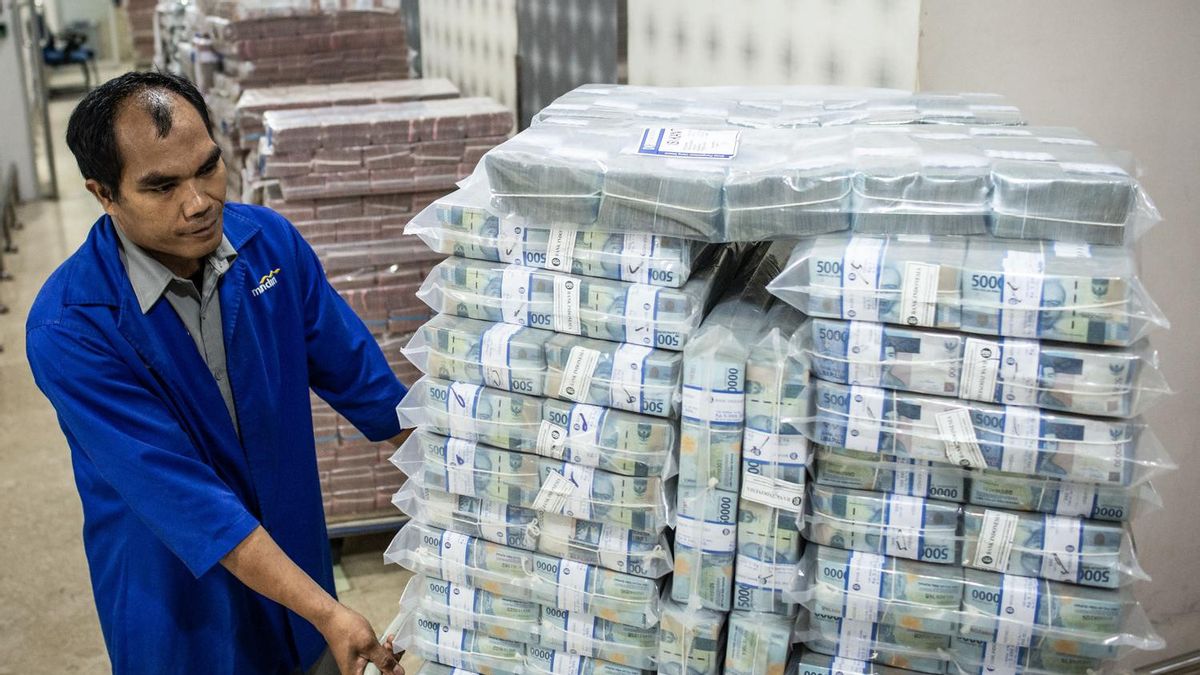JAKARTA - During the Working Meeting of the Budget Agency (Banggar) of the DPR RI with the government earlier this week, information emerged that Indonesia had paid debt interest of Rp. 317.89 trillion on loans that reached Rp. 6,080.08 trillion throughout 2020.
The amount of interest jumped from the 2019 period which was stated at Rp277.23 trillion.
Investigate a calibaration, the amount of debt last year increased by no less than Rp1,293.5 trillion from or 27.2 percent from 2019.
This was also sharply highlighted by the Prosperous Justice Party (PKS) faction to become the attention of the central government so that state financial management would be better.
"This value is a new history in the accumulation of debt that has increased in one fiscal year," PKS legislator Muhammad Nasir Djamil when representing his faction to provide views on the accountability of the 2020 State Budget, at the Senayan Parliament Complex, Jakarta.
Just so you know, Indonesia's debt vulnerability indicator is assessed by the IMF (International Monetary Fund/International Monetary Fund) to exceed the standard debt service ratio to revenue, which should be 25-35 percent. Meanwhile, Indonesia's record is 46.77 percent.
In addition, the ratio of debt interest payments to revenues of 19.06 percent was stated to exceed the IMF's recommendation of 7-10 percent.
Sri Mulyani's subordinates answer
Special Staff to the Minister of Finance for Strategic Communication Yustinus Prastowo opened his voice on the condition of Indonesia's debt which the IMF considers to be in an offside position.
According to Yustinus, the pandemic has made widening the budget deficit unavoidable. This then has implications for the increasing structure of state financial financing.
"This pandemic is an extraordinary event. Almost all countries face this and take countercyclical policies to maintain the economy and provide stimulus. The implication is that the deficit is widening. But this must be taken for the sake of a greater purpose and interest,” he said as reported by VOI on June 24.
However, Sri Mulyani's subordinates still believe that what the government is doing is still on a safe path.
"In 2020, the government has managed APBN financing with extraordinary policies that keep financing in safe conditions. Even efforts to reduce the cost of debt are carried out in various ways, such as burden sharing with BI, conversion of foreign loans with interest rates close to 0 percent, and lower yields to 5.85 percent," he said.
The English, Chinese, Japanese, Arabic, and French versions are automatically generated by the AI. So there may still be inaccuracies in translating, please always see Indonesian as our main language. (system supported by DigitalSiber.id)








